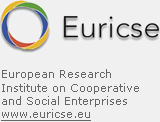The Sixth International Conference On Catholic Social Thought And Management Education
Pontifical University of St. Thomas (Angelicum)
Rome, Italy - October 5-7, 2006
Presentation and call for papers
General Description: In January 2005, The Economist survey of corporate social responsibility (CSR) took a “sceptical view” of the “good company.” This conference offers the opportunity to take another, more thoughtful, look at the idea of the “good company” using the lenses provided by the CSR movement and the Catholic social tradition (CST).
The literature and practice in these two areas are well developed, and often they consider the company in similar ways with similar concerns, but perhaps surprisingly, there has been little organised and explicit interaction between them. Our conference aims, therefore, to bring them into dialogue regarding both what makes a company “good,” and what makes its activity “good” for society. We are therefore seeking papers that engage CST and CSR in examining the good company, at either theoretical or practical levels or both. In particular, we are seeking papers that advance thinking and practice in the following areas:
1. Understanding the Good Company: Ethical Foundations.
As in every understanding of business, both CST and CSR start from certain philosophical and theological worldviews and use certain basic concepts and principles in explaining what makes a company good. In CST, these principles include the common good, human dignity, solidarity, subsidiarity and the preferential option for the poor. Its outlook is strongly influenced by Aristotelian- Thomistic philosophy. In CSR, basic concepts include stakeholder theory, corporate citizenship and sustainability. Its outlook is less clearly defined than in the case of CST, but may often contain elements of Kantianism and enlightened utilitarianism. We are looking for papers that examine what makes a company good while bringing these two traditions of thought into dialogue. In particular, we are looking for papers that highlight their conceptual convergences and divergences (for further details, see position paper on foundations.
2. Practices and Policies of the Good Company.
For the company to be “good,” great basic concepts and a helpful philosophical outlook are necessary but not sufficient. We are therefore also seeking papers that address business policies and practices from within the theological and philosophical insights of CST and CSR. We are looking for explicit linkages to be made between principle and practice. We are especially interested in submissions that connect the following issues to the first principles of CST and CSR and which include richly described stories and cases that clarify the policies and practices of the good company (for further details, see position paper on “middle-level thinking”.
• Policies and practices regarding employees, especially to do with wealth distribution and job design - promoting justice and overcoming inequity. What are the compensation and general human resource policies, as well as those regarding ownership and governance, that enable the company to be good? Relevant here are the questions of living or just wages, fair executive pay, ownership of capital and the universal destination of material goods and the social nature of property. What are the policies and practices that enable the good company to create good work systems? (e.g., good job/organizational design, reengineering – as related to subsidiarity and the subjective dimension of work).
• Policies and practices regarding the promotion of human rights and investment in developing countries: How should the good multinational company relate to the promotion of human rights in developing countries? How does the good company invest in operations in the developing world? Relevant here are international codes of conduct, global production chains, foreign direct investment strategies, the question of outsourcing and layoffs, etc., connected to the preferential option for the poor, the role of the priority of labor over capital, the universal destination of material goods, virtues of justice and solidarity, etc.
• Policies and practices regarding environmental protection: How does the good company promote environmental protection while staying in business on a global stage? Given the difficulty of obtaining international agreements, what is the role of regional regulation (as in the EU) or company specific policies with regard to environmental goals? Relevant here, among other things, are the concepts of the goodness of creation, the covenant, the universal destination of material goods and the virtues of temperance and good stewardship.
• Accounting for the good company: What assessment or measurement systems can be integrated with the ethical basis and the practical policies of a CST-based CSR?
3. Pedagogical Approaches
We are also seeking papers which link CST and CSR at
theoretical and practical levels for use in the formation of managers in business schools,
especially Catholic business schools.
Advisory Committee
Helen Alford, Thomas Bausch, Leo Andringa, Leonardo Becchetti, Andriy Borovets, Luigino Bruni, Francesco Cesareo, Francesco Compagnoni, Charles Clark, Peter Davis, Edwin M. Epstein, Jeanette Loanzon, Dennis McCann, Michael Naughton, Giampietro Parolin, Ernest Pierucci, Mark Sargent, Mark Sorokin, Lee Tavis, Pablo Tiong, Volodymyr Turchynovskyj, Stefano Zamagni
Conference Sponsors
Faculty of Social Science, Pontifical University of St Thomas, (Angelicum); the John A. Ryan Institute for Catholic Social Thought of the Center for Catholic Studies at the University of St. Thomas; University of Santo Tomas, Manila, Philippines; Economy of Communion of Focolare; Peter J. Tobin School of Business at St. John’s University; The McAnulty College and Graduate School of Liberal Arts at Duquesne University of the Holy Spirit.
Submission Criteria
Send a two page single spaced proposal which includes the following: thesis,
outline of paper, and a one paragraph biography that includes institutional position and affiliation, recent publications, research interest, practical experience. Only one proposal per person accepted. Proposals must be original works, not previously published or presented.
• Submissions from the Americas and Australia send proposal by January 31, 2006 to:
Michael J. Naughton
John A. Ryan Institute for Catholic Social Thought
University of St. Thomas, 55S
2115 Summit Ave.
St. Paul, MN 55105-1096 USA
e-mail: [email protected]
fax +651-962-5710
• Submissions from Europe, Africa and Asia send proposal by January 31, 2006 to:
Helen Alford, O.P.
Faculty of Social Sciences,
Pontifical University of St Thomas,
Largo Angelicum 1
00184 Roma, Italy
e-mail: [email protected]
fax +39 06 67 90 407








